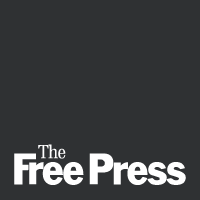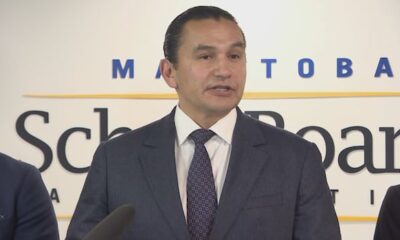Education
Rethinking Literacy: A Broader View of Education’s Core Skill

The concept of literacy is undergoing a significant transformation as educators and policymakers seek to redefine its meaning beyond traditional reading and writing. A recent discussion at the University of Winnipeg highlighted the broader implications of literacy in today’s educational landscape. The university announced a pause in its “Literacy Leadership Post-Baccalaureate” program, which aims to provide comprehensive training on literacy theories and instructional techniques. The program’s leaders indicated that this pause will allow time to reflect on evolving research and policy developments in literacy education.
In a statement made in August 2023, a program leader emphasized the importance of shaping future literacy-focused professional learning opportunities. This shift comes amid a growing recognition that literacy encompasses more than just the ability to read and write; it includes critical thinking, communication skills, and even digital literacy, especially in a world increasingly influenced by technology and artificial intelligence.
A webpage from Manitoba’s English Language Arts curriculum defines literacy as “the ability to think and use language for learning, creating, communicating, and interacting with ideas, others, and the world around us.” This definition acknowledges the role of numeracy and “multiliteracies,” which encompass various forms of communication beyond traditional text. The emphasis on thinking as a standalone skill raises questions about how educators can effectively instill a desire for learning and engagement in students.
The Organisation for Economic Cooperation and Development’s Programme for International Student Assessment (PISA) evaluates students’ achievements in mathematics, science, and reading across various countries, including Canada. According to the Pan-Canadian Assessment Program (PCAP) 2019 report, Canadian curricula aim to develop literacy in a comprehensive sense, enabling students to critically analyze and create a variety of communication forms, including oral, written, visual, digital, and multimedia.
While organizations like UNESCO define literacy more narrowly in terms of reading and writing, they also highlight sustainability and global citizenship as essential components of education. Manitoba Education’s global competencies further illustrate the need for critical thinking, as students are encouraged to evaluate their assumptions and beliefs in light of evidence and ethical considerations. This broader framework positions literacy as a multifaceted skill that encompasses ethical responsibility, curiosity, and discernment.
Understanding illiteracy in this expanded context reveals that it can manifest in various forms, including intolerance, prejudice, and disinterest in critical issues like climate change. These are significant concerns that often prevail even among those who can read and write proficiently. The notion that simply teaching reading and writing equates to imparting literacy is a misconception that needs addressing.
In educational settings, literacy instruction should not be confined to traditional reading and writing classes. Every subject, activity, and interaction within the school environment contributes to building literacy. The collective tone and approach taken by educators, school boards, and communities play a vital role in modeling literacy for students.
While reading and writing remain crucial components of literacy, they are not the sole determinants of being literate. A comprehensive understanding of literacy requires a commitment from all stakeholders in education to foster a culture of engagement, curiosity, and responsible citizenship.
Ken Clark, a retired educator from Winnipeg, underscores the importance of this broader perspective, having spent 28 years focused on large-scale student assessment and defining clear learning goals. The conversation on redefining literacy is not merely academic; it is foundational for developing engaged and informed citizens in an increasingly complex world.
-

 Politics4 weeks ago
Politics4 weeks agoSecwepemc First Nation Seeks Aboriginal Title Over Kamloops Area
-

 World5 months ago
World5 months agoScientists Unearth Ancient Antarctic Ice to Unlock Climate Secrets
-

 Entertainment5 months ago
Entertainment5 months agoTrump and McCormick to Announce $70 Billion Energy Investments
-

 Science5 months ago
Science5 months agoFour Astronauts Return to Earth After International Space Station Mission
-

 Lifestyle5 months ago
Lifestyle5 months agoTransLink Launches Food Truck Program to Boost Revenue in Vancouver
-

 Technology3 months ago
Technology3 months agoApple Notes Enhances Functionality with Markdown Support in macOS 26
-

 Lifestyle3 months ago
Lifestyle3 months agoManitoba’s Burger Champion Shines Again Amid Dining Innovations
-

 Top Stories2 months ago
Top Stories2 months agoUrgent Update: Fatal Crash on Highway 99 Claims Life of Pitt Meadows Man
-

 Politics4 months ago
Politics4 months agoUkrainian Tennis Star Elina Svitolina Faces Death Threats Online
-

 Sports5 months ago
Sports5 months agoSearch Underway for Missing Hunter Amid Hokkaido Bear Emergency
-

 Politics5 months ago
Politics5 months agoCarney Engages First Nations Leaders at Development Law Summit
-

 Technology5 months ago
Technology5 months agoFrosthaven Launches Early Access on July 31, 2025




















